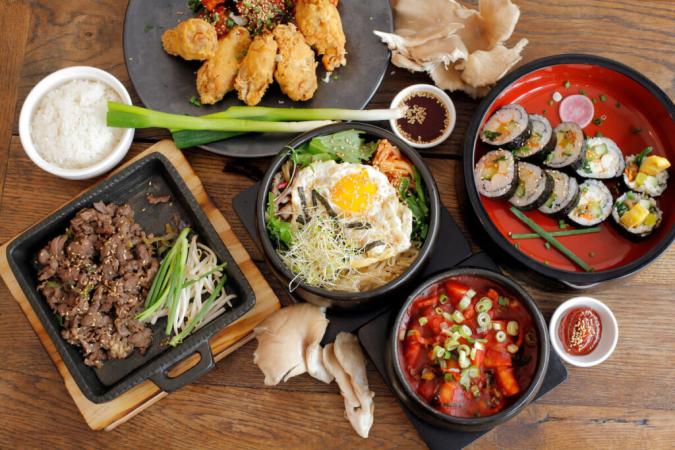South Korea’s cultural influence is undeniable these days, spanning music, literature, film, and television. Now, that success is extending to another domain: Korean cuisine is captivating global diners, even in the elite world of fine dining. NPR’s Anthony Kuhn explores Seoul’s vibrant food scene, introducing us to innovative chefs and their creations.
UNIDENTIFIED PERSON: "Alright, everyone, welcome to our first lunch service this week."
(Applause)
ANTHONY KUHN: At Evett, a Michelin-starred restaurant in Seoul’s upscale Gangnam district, the staff energizes for lunch service. Since 2020, the restaurant has held a Michelin star for its exceptional cooking. Australian chef Joseph Lidgerwood crafts his signature dishes with precision.
KUHN: "We’re looking at a sandy-colored block. Joseph, what is this?"
JOSEPH LIDGERWOOD: "This is meju—the foundation of Korean fermentation. From it comes soy sauce, fermented soybean paste, and chili paste."
Topped with a caramelized cream donut, anchovies, and black garlic, the inedible block serves as a thought-provoking centerpiece.
LIDGERWOOD: "Though I’m not Korean, I’m fascinated by Korean ingredients. Here at Evett, we reinterpret them, encouraging diners to reflect on tradition."
Next, Lidgerwood presents a playful twist on Korean culture—a traditional black hat made of earthenware, filled with abalone, radishes, and onions, crowned with a perilla-seed wafer. A wooden window frame holds sweets like ginseng marshmallows and sesame-oil caramels. Many dishes blend sweet and salty flavors, with textures reminiscent of European cuisine.
Lidgerwood frequently forages across South Korea for fresh, seasonal ingredients.
LIDGERWOOD: "Our menu is built on seasonal produce and an extensive library of fermented ingredients."
Korean cuisine has now claimed its place in the global fine-dining scene, once ruled by French, Italian, and Japanese fare. In New York, two of last year’s twelve new Michelin stars went to Korean restaurants. Junghyun Park, owner of the two-Michelin-starred Atomix, says this success didn’t happen overnight.
JUNGHYUN PARK (via interpreter): "Many of us started in the early 2000s, honing our skills for nearly two decades. Now, that dedication is paying off."
Park insists he doesn’t alter Korean flavors to suit Western palates—he simply cooks what he loves.
PARK (via interpreter): "New York diners are open to new cultures. I don’t need to change their tastes—they embrace authenticity."
Cho Hee Sook, a pioneer of Korean fine dining, began her career in the 1980s when chefs held little prestige. She adapts traditions to modern lifestyles, noting that rice—once central to Korean meals—is often omitted today, with side dishes (banchan) taking center stage.
(Soundbite: BLACKPINK’s "How You Like That")
Korean food is riding the Hallyu wave, propelled by global hits like BTS, Blackpink, Parasite, and Squid Game. The South Korean government and corporations are capitalizing on this momentum.
Yang Joo-pil (Ministry of Agriculture, Food and Rural Affairs): (via interpreter) "Our goal is to boost global exposure for Korean food, driving exports of agricultural products."
Strategies include product placements in K-dramas and selling Korean food at overseas K-pop concerts. Conglomerate CJ supports rising chefs like Lidgerwood to expand its global market.
Back at Evett, Lidgerwood serves his final course: grilled Korean beef with rice-and-fermented-soybean puree. While not every diner seeks deep culinary knowledge, his passion drives him.
LIDGERWOOD: "My love for Korean food brought me here. Meeting farmers, sourcing ingredients—it’s a joy, not a chore."
Of course, this experience comes at a price: $114 for lunch, $190 for dinner

